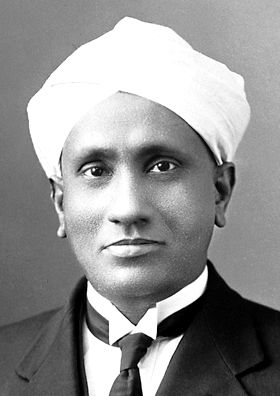National Science Day

Every year on 28th of February, India celebrates its National Science Day to commemorate the discovery of the Raman Effect, named after Sir C. V. Raman. Sir Chandrasekhara Venkata Raman was a world renowned physicist and one of the greatest Indians of the 20th century. Among his many scientific achievements the discovery of the effect named after him is the pedestal. Co-discovered with help from K. S. Krishnan, Sir Raman was a man of extraordinary intelligence and fortitude. His discovery came at a time when India was still under colonial rule and not much science was going on in Indian academia. Sir Raman’s discovery gave the much needed impetus for Indian science at that time, and he was rightly hailed as a harbinger of a golden era in Indian science and technology.
The story of Raman is one worth knowing for every Indian, and we should all be proud of his achievements. On 28th of February 1928, Raman made the announcement of his discovery and it took the scientific world by storm. In 1930, he was awarded the Nobel Prize for Physics for this discovery; and thus he became only the second Indian after Sri Rabindranath Tagore to get the coveted Nobel Prize. Raman made his discovery without the help of any sophisticated laboratory unlike his fellow scientists of the west. He made his great discovery working hard at his small laboratory at the Indian Association for the Cultivation of Science (IACS) at Kolkata which still stands and continues to produce highly acclaimed science that is respected the world over. Raman had to go from door to door seeking funds to carry on his work, and such was his confidence that he told the people who funded him that he would get a Nobel Prize for India in less than a year. He did it in two years, which is unprecedented even now.
Raman, after winning the prize continued to do great research in acoustics and scattering of light, fields which he completely revolutionized. He later became the Director of the Indian Institute of Science at Bangalore which is considered to be the Mecca of Indian science. But due to political turmoil at the Institute, he left it and started his own research institute at Bangalore named after him as the Raman Research Institute (RRI). He is also credited with founding one of the oldest scientific bodies in India, the Indian Academy of Science (IASc) at Bangalore whose office is still inside RRI. The fellowship of the IASc is one of the most coveted titles that any Indian scientist or mathematician can hope to get even today. Raman was duly awarded by almost every agency of the world. He was one of the earliest Fellows of the Royal Society of England from India and was also one of the first persons to be awarded the Bharat Ratna.
Thus it is only fitting that we should celebrate a day for Indian science, and who better to honour than Sir C. V. Raman, who showed that India had the potential to do world renown science even under the rule of foreigners. National Science Day (NSD) is a celebration of the spirit of science and this day reminds us that, we as Indians should take pride and try to cultivate our scientific heritage. One of the fundamental duties of every Indian citizen is to develop a scientific temper and NSD is an occasion where numerous scientific agencies throughout India tries to help the masses know about this duty and how to implement the scientific method and inquiry in their lives. Science and technology are the only saviours of mankind, and India as one of the largest nations in the world must embrace this fact and work towards improving its standards of scientific research. The NSD is co-ordinated throughout the nation by the Department of Science and Technology, Government of India with activities for school students as well as college and university students.
The real success of NSD will only be measured if everyone of us begins to understand the value of science and technology in our lives. Only when we will start treating our scientists, our mathematicians and our engineers as the true heroes, then no one can stop India from becoming a world force to reckon on. So let us join hand in hand and celebrate not just NSD but Indian science and its scientists. For as the saying goes, science is as much a way of life in the 21st century as it will ever be.
[This article was solicited by Eastern Today, a newspaper from North East India on the occasion of National Science Day 2015.]
